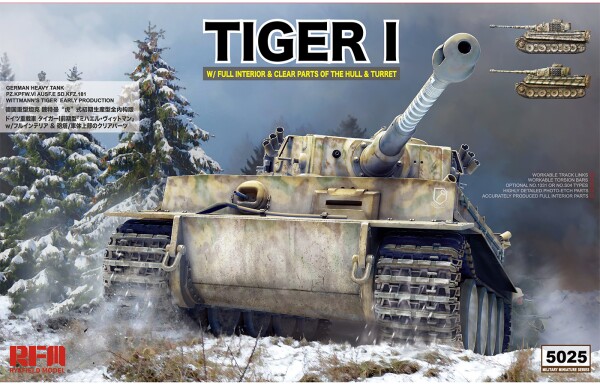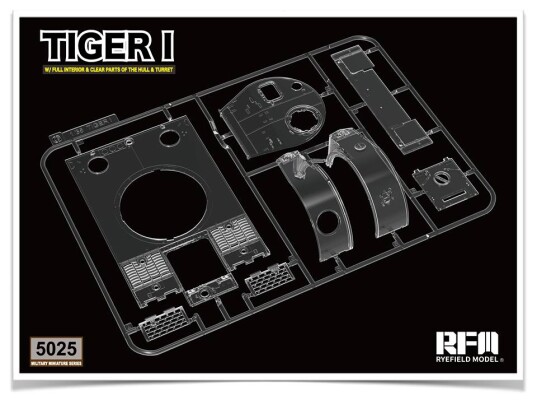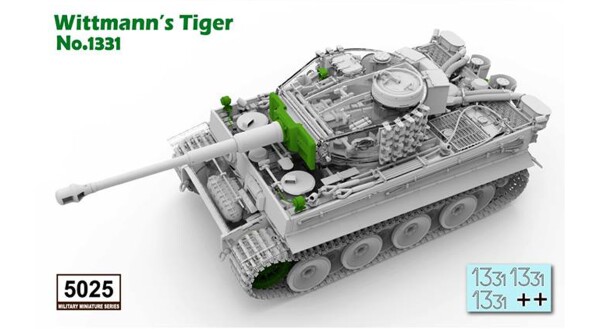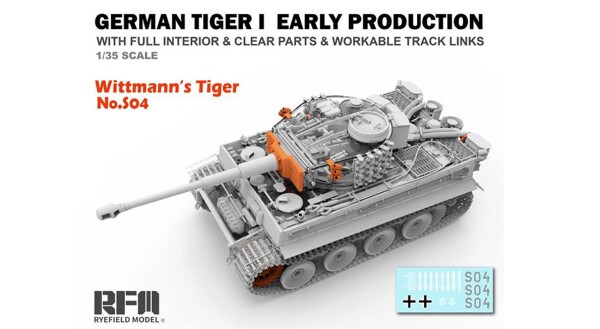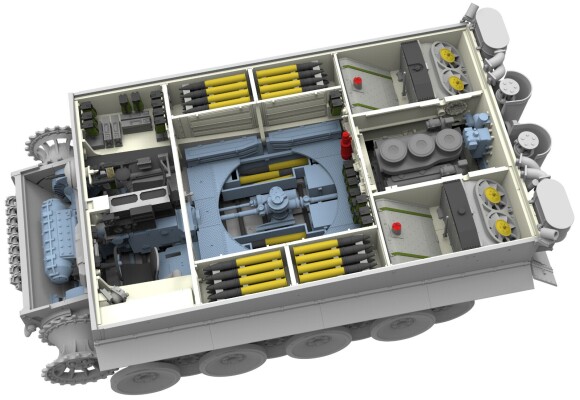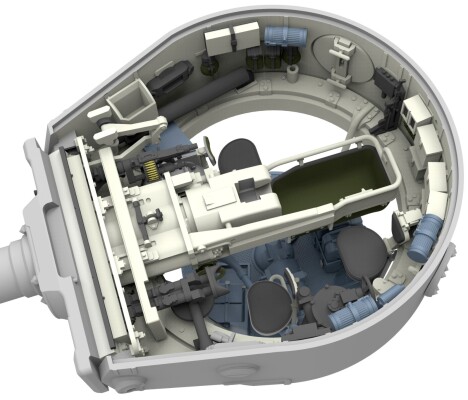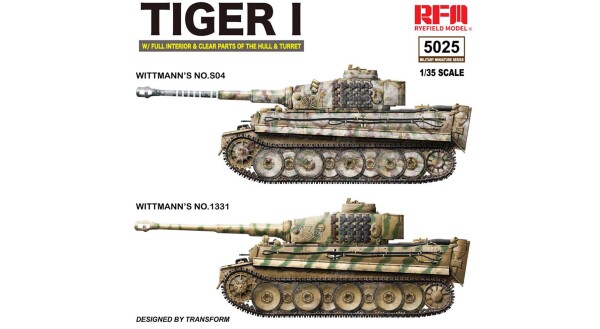Description
Scale model 1/35 Tank Tiger I early release with full interior, transparent details and working tracks Rye Field Model RM-5025 with delivery throughout Ukraine and stores in Kyiv and Odesa.
Glue and paints are not included
Included:
sprues with parts,
transparent parts,
photoetching,
cable,
decals,
scheme for painting the model,
step-by-step instructions.
PzKpfw VI Tiger I, "Tiger" - German heavy tank of the Second World War, developed in 1941-1942 by the Henschel company under the leadership of Erwin Aders. In the departmental classification of armored vehicles of Nazi Germany, it was also designated as Sd Kfz 181. For the first time, Tiger I tanks took part in combat operations in September 1942 near the Mga station near Leningrad, and began to be used on a massive scale from the Battle of Kursk, and were used by the Wehrmacht and SS troops until the end of World War II.
